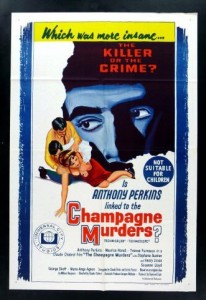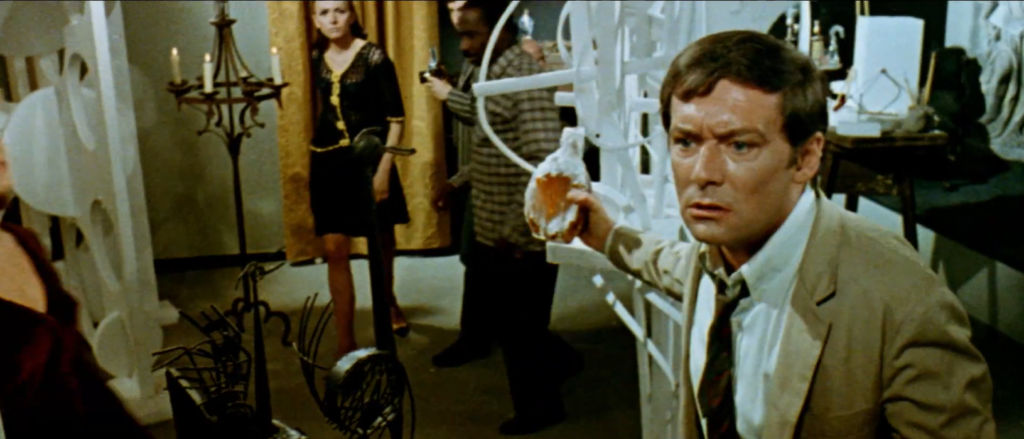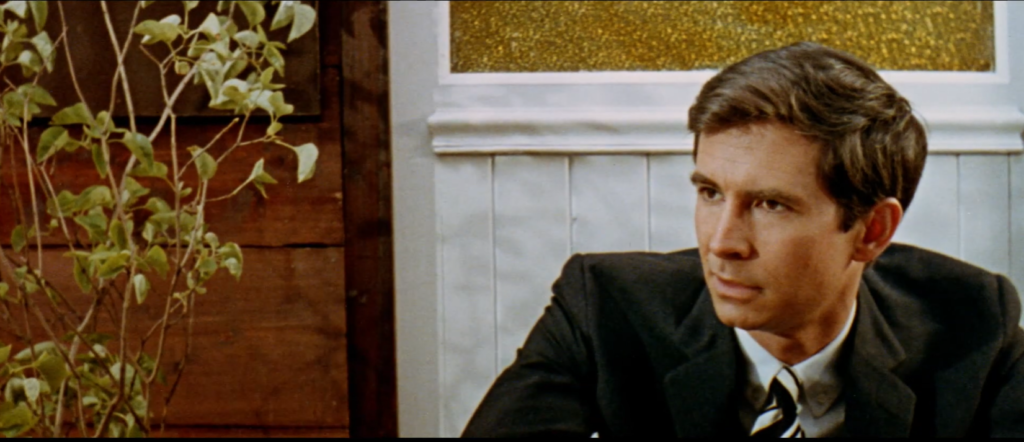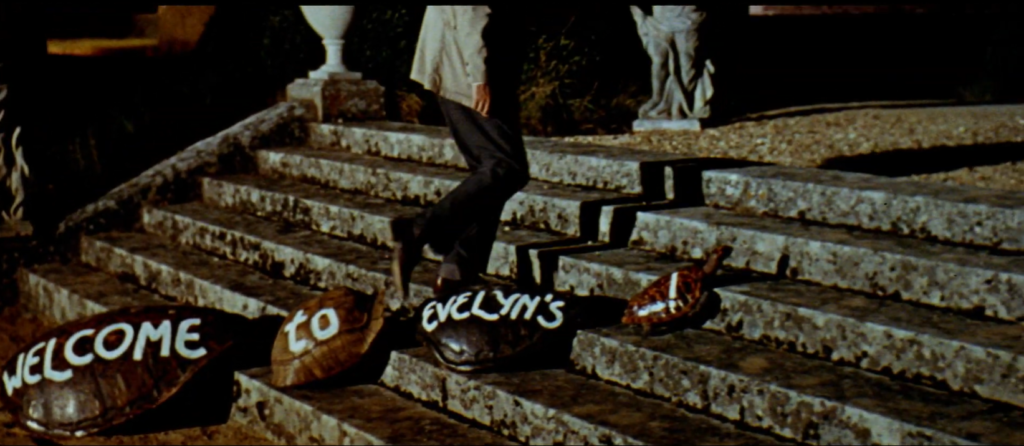“I thought I was cured… But instead, it’s getting worse!”
|

Synopsis:
The opportunistic owner (Yvonne Furneaux) of a champagne factory enlists the help of her husband (Anthony Perkins) in convincing her mentally unstable business partner (Maurice Ronet) to sell the rights to his famous last name. Soon a mysterious rash of murders occurs, with Ronet the prime suspect.
|
|
Genres, Themes, Actors, and Directors:
- Anthony Perkins Films
- Claude Chabrol Films
- French Films
- Mental Illness
- Murder Mystery
Review:
This mess of a murder mystery by French director Claude Chabrol aspires towards Hitchcockian thrills, but comes across as a lame, ineffectual satire instead. The acting by everyone involved is either over-the-top (Furneaux, Ronet):

… and/or cliched (Perkins):

None of the characters are likeable; and the script makes no sense from beginning to end. Although the final resolution of “whodunit” comes as a surprise, this can’t make up for the remainder of the insipid story, which is eminently unwatchable. A major disappointment.
Redeeming Qualities and Moments:
- Fine cinematography and sets

Must See?
No. While it’s inexplicably listed as a Personal Recommendation in the back of Peary’s book, this is a disappointing entry in Chabrol’s oeuvre, and definitely not must-see viewing.
Links:
|




One thought on “Champagne Murders, The (1967)”
Not a must – and dull, dull, dull. One wishes it to be over soon after it begins. When that doesn’t happen, one hopes it gets better. It doesn’t.
Since 1958, Director Chabrol has more or less made a film a year (and currently, at age 77, continues to do so). He seems to love nothing more than the act of filmmaking – and seems to feel that if, along the way, a good one comes out, fine; and, apparently, if not, fine. Perhaps he simply makes too many films. A number of them are quite good and must-sees. This is not one of them.
While the script does…kind of…make sense, it’s as sluggish as Chabrol’s direction. In fact, everyone involved seems rather uninterested in the project at hand. Perkins even finds opportunities to ‘comment’ on the film and his work in it. As the film crawls to its conclusion, Chabrol realizes he has no ending and opts for an artsy fade-out.
The only real mystery here is why Peary would include this title in his book at all, let alone make it a personal recommendation (!).